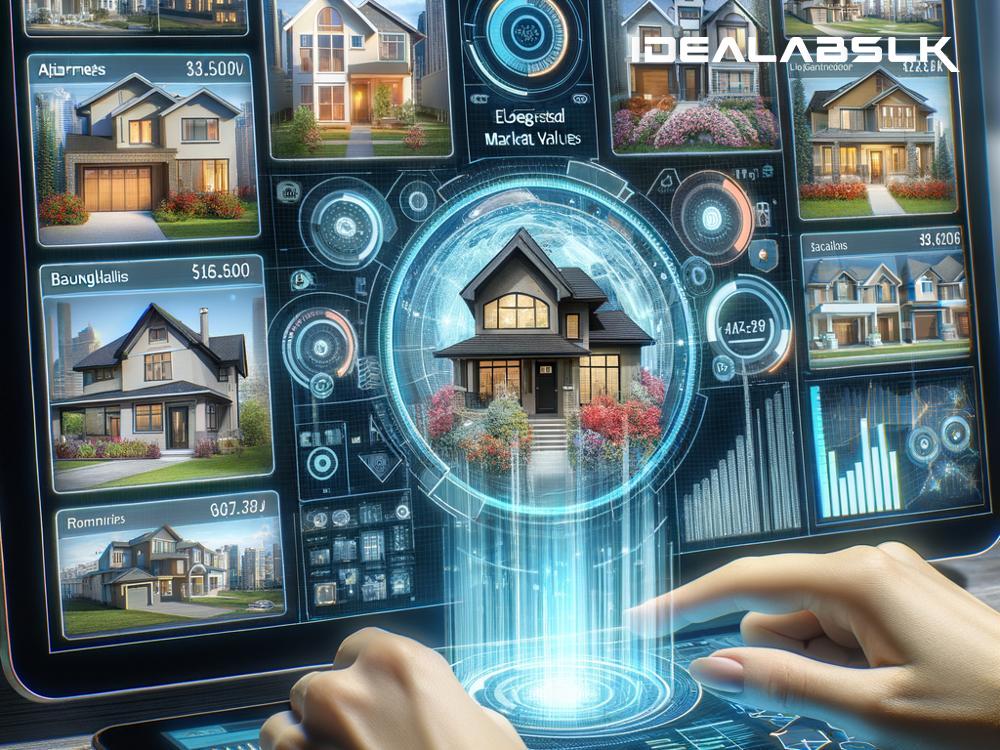Unlocking Property Potential: How AI is Shaping Real Estate Price Estimation
In the dynamic world of real estate, understanding the true value of property assets is more than just beneficial—it's essential. From homeowners looking to sell at the best price to investors seeking valuable additions to their portfolios, accurate price estimation stands as a critical step. Enter Artificial Intelligence (AI), a revolutionary technology that's transforming the landscape of real estate asset price estimation.
Demystifying AI in Real Estate
Artificial Intelligence, at its core, involves machine learning and predictive analysis to simulate human intelligence in machines. When applied to real estate, AI can analyze vast amounts of data, including past sales, property features, and market trends, to forecast property values with remarkable accuracy. This capability is not just about crunching numbers; it’s about offering a nuanced understanding of the real estate market that can benefit everyone involved.
Why AI? The Benefits Unveiled
-
Accuracy and Speed: AI reduces human error, providing more reliable price estimations. It can process and analyze data far quicker than any human, ensuring property valuations are both accurate and timely.
-
Data-Driven Decisions: By tapping into extensive databases, AI can incorporate factors such as local market trends, demographics, and even the impact of nearby schools on property values. This comprehensive analysis helps buyers, sellers, and investors make informed decisions.
-
Future Forecasting: AI's predictive capabilities can forecast future market trends, helping stakeholders anticipate changes in property values. This foresight is invaluable for long-term planning and investment strategies.
-
Accessibility: With AI-powered tools and platforms becoming more common, anyone from individual homeowners to large real estate firms can access sophisticated price estimation.
Real-world Applications of AI in Real Estate Price Estimation
Several innovative applications of AI in the real estate sector demonstrate its transformative potential:
-
Automated Valuation Models (AVMs): These models use AI to analyze data points on a property and its comparable sales within an area to estimate its value instantly. Websites offering instant home valuations use AVM technology to provide users with a quick estimate.
-
Virtual Property Tours: AI-driven platforms can create virtual tours that analyze viewer interactions. These insights can help sellers understand which features are most attractive to buyers, indirectly informing the property's valuation.
-
Chatbots and Virtual Assistants: These AI tools can handle initial queries regarding property prices and features, streamlining the information-gathering process for buyers and sellers.
Challenges and Considerations
While AI's advantages in real estate price estimation are clear, there are challenges to address:
-
Data Privacy: As AI systems rely on extensive data, ensuring the privacy and security of personal information is paramount.
-
Bias and Accuracy: AI models are only as good as the data they're trained on. Biased or inaccurate data sets can lead to skewed property valuations. Regular updates and unbiased data are crucial for maintaining accuracy.
-
Cost: Implementing AI solutions can be costly, especially for smaller real estate businesses. However, the long-term benefits and efficiencies often justify the initial investment.
Looking Ahead: The Future of AI in Real Estate
The future of real estate lies in harnessing technology to make processes more efficient and decisions more informed. As AI technology advances, we can expect even more sophisticated tools for price estimation, including real-time market analysis and personalized investment suggestions.
AI’s role in real estate is not about replacing human agents or advisors but enhancing their capabilities. By providing accurate, data-driven insights, AI helps real estate professionals offer better guidance, negotiate more effectively, and identify opportunities that might have otherwise been missed.
In a world where the value of real assets is subject to fluctuations and myriad influencing factors, AI stands as a beacon of precision and efficiency. Whether you're buying your first home, selling an investment property, or developing a real estate portfolio, embracing AI's power for asset price estimation can unlock potential and drive success.
Conclusion
AI's impact on real estate price estimation is undeniable. By offering precise, fast, and data-driven valuations, AI enables buyers, sellers, and investors to navigate the market with confidence. As we move forward, the integration of AI in real estate promises not only to refine price estimation methods but also to reshape the industry's future. For anyone involved in real estate, embracing AI isn't just a step towards innovation—it's a leap towards securing value in an ever-evolving market.

